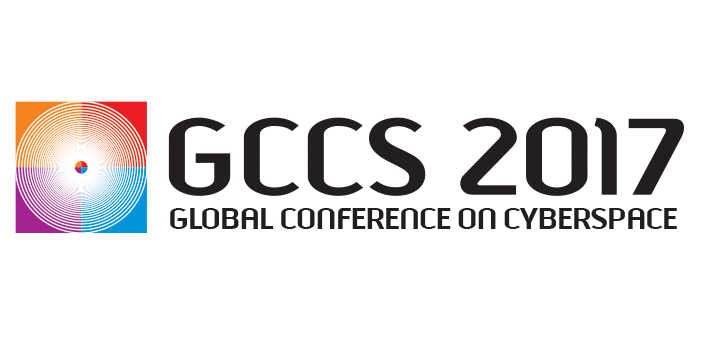News item | 21-11-2017
Author: Manon van Tienhoven, GFCE Secretariat
Over the past year, the Global Forum on Cyber Expertise (GFCE) community has taken leadership in developing a Global Agenda for Cyber Capacity Building (GACCB) through extensive research, consultation and discussion. At the Global Conference on Cyberspace 2017 in New Delhi, the GFCE community will present a Delhi Communiqué which serves as a formal announcement of the GACCB to the GCCS community. The aim of the document is to give a political impulse to the importance of cyber capacity building.
When the Global Forum on Cyber Expertise (GFCE) was launched at the GCCS2015 in The Hague, it set out to be a global platform for countries, international organizations and private companies to exchange best practices and expertise on cyber capacity building. The GFCE serves as a knowledge hub and a platform to exchange ideas on good practices. By matching demand and supply, the GFCE functions as a clearing house that helps match members looking to share ideas and good practices with members looking to implement projects or host projects. The GFCE contributes to a better overview of existing and planned capacity building initiatives; this minimizes duplication and conflict of actions, wherever possible promotes synergies and cooperation among (regional) stakeholders. These are all examples on how the GFCE has taken on a coordinating role in the field of cyber capacity building, which has led to the development of a Global Agenda with priorities and ambitions on cyber capacity building as well as the GFCE Global Good Practices.
Call for action
The Global Agenda for Cyber Capacity Building is a collection of shared ambitions on the priority setting of cyber capacity building topics. The aim of the GFCE community (GFCE Members, Partners and the Advisory Board) is to steer the development of an internationally coordinated response to cyber capacity building. Therefore it is essential to address the sense of urgency and to call for action to jointly strengthen cyber capacities. A Global Agenda is being developed with the objective to assist the global community with identifying future priorities for cyber capacity building and to recognize the need for practical guides, frameworks and practices on the topic. The GFCE aims to encourage to the global community with the GACCB to:
- Promote existing good practices;
- Strengthen international cooperation;
- Identify knowledge, technical or expertise gaps;
- Make more efficient use of available resources;
- Establish a concrete set of ambitions and concrete actions.

The Global Conference on CyberSpace 2017 takes place on November 23-24 in New Delhi, India.
Taking a bottom-up, multistakeholder approach
The GFCE community has taken leadership in developing a Global Agenda. At every step of this development process, a broad range of stakeholders in cyber capacity building: national governments, technical community, private companies, international organizations, knowledge partners and civil society have been invited to provide input and feedback to ensure that the Agenda supports global and shared ambitions. Throughout the entire bottom-up process, the GFCE community had the opportunity to reflect on the various Global Agenda drafts during meetings; using feedback forms and questionnaires; as well as in individual and multistakeholder group conference calls. During the GCCS2017, the ambitions of the Global Agenda will be shared with the wider community by means of the Delhi Communiqué.

Next step: implementation
The GCCS2017 is a milestone in the existence of the GFCE; gaining support for the Delhi Communiqué and therewith the ambitions of the Global Agenda on high political level will give a political impulse to the importance of cyber capacity building. The call for action will lead to the development of an international response to cyber capacity building, which will need to be coordinated. In this regard, the existing GFCE initiatives work on formulating a set of GFCE global good practices (GGP). A GGP can be understood as a practice, recognized by experts in the field, which has proven to work and produce good results, and may be generically applicable for the global community. Examples of GGP include a practical tool, a set of related standards, or a guideline document. For practical purposes, a GGP includes specific recommendations regarding implementation. The development of the GFCE GGP is bringing the clearing house function of the GFCE to the next level by sharing the best practices and lessons learned with the GFCE and broader community. By taking this approach the GFCE avoids duplication and unveils gaps, improving efficient cyber capacity building.
Over the past two years, the GFCE has accomplished to expand its network and its role in cyber capacity building. Now the time has come to raise the stakes. The result of the bottom-up process over the past year has set out a clear path for the coming years for the GFCE. Moving forward the GFCE will continue to work on priority-setting in cyber capacity building, identifying global good practices and develop a concrete action plan for the GFCE community.
This article first appeared in the fourth issuse of the Global Cyber Expertise Magazine – November 2017

